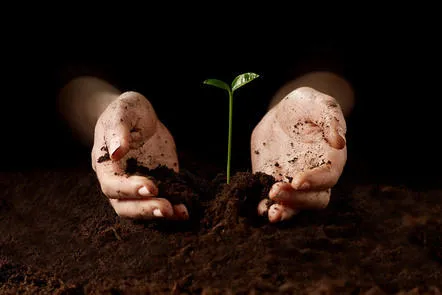
Soils - Online Course 
This online course provides an introduction to the study of soils. It covers topics such as soil formation, soil composition, soil classification, soil fertility, and soil management. It also explores the importance of soils in the environment and how they can be managed for sustainable use. Students will gain an understanding of the physical, chemical, and biological properties of soils and how they interact with the environment. ▼
ADVERTISEMENT
Course Feature
![]() Cost:
Cost:
Free
![]() Provider:
Provider:
Futurelearn
![]() Certificate:
Certificate:
No Information
![]() Language:
Language:
English
![]() Start Date:
Start Date:
Self Paced
Course Overview
❗The content presented here is sourced directly from Futurelearn platform. For comprehensive course details, including enrollment information, simply click on the 'Go to class' link on our website.
Updated in [May 25th, 2023]
This online course, Soils, provides an introduction to the study of soils and their importance in the environment. It covers topics such as soil formation, soil composition, soil classification, soil fertility, and soil management. Students will learn about the physical, chemical, and biological properties of soils, and how these properties affect the environment. They will also explore the role of soils in agriculture, forestry, and other land uses. The course also includes an introduction to soil conservation and management practices. Upon completion of the course, students will have a better understanding of the importance of soils and their role in the environment.
[Applications]
After completing this course, students can apply their knowledge of soils to a variety of fields. They can use their understanding of soil composition and properties to inform agricultural practices, land management, and environmental conservation. They can also use their knowledge to develop strategies for soil remediation and restoration. Additionally, students can use their knowledge of soils to inform their research in related fields such as geology, hydrology, and ecology.
[Career Paths]
1. Soil Scientist: Soil Scientists are responsible for studying the physical, chemical, and biological properties of soil and how it affects the environment. They use their knowledge to develop strategies for improving soil quality, managing land use, and protecting the environment. As the demand for sustainable agriculture and land management increases, the need for Soil Scientists is expected to grow.
2. Agronomist: Agronomists are responsible for studying the science of crop production and soil management. They use their knowledge to develop strategies for improving crop yields, managing land use, and protecting the environment. As the demand for sustainable agriculture and land management increases, the need for Agronomists is expected to grow.
3. Environmental Scientist: Environmental Scientists are responsible for studying the effects of human activities on the environment. They use their knowledge to develop strategies for improving environmental quality, managing land use, and protecting the environment. As the demand for sustainable agriculture and land management increases, the need for Environmental Scientists is expected to grow.
4. Landscape Architect: Landscape Architects are responsible for designing and planning outdoor spaces. They use their knowledge to develop strategies for improving the aesthetic and functional qualities of outdoor spaces, managing land use, and protecting the environment. As the demand for sustainable agriculture and land management increases, the need for Landscape Architects is expected to grow.
[Education Paths]
1. Soil Science: Soil Science is a field of study that focuses on the physical, chemical, and biological properties of soils. It is an interdisciplinary field that combines aspects of geology, chemistry, biology, and ecology. This degree path is becoming increasingly popular as the importance of soil health and sustainability is becoming more widely recognized.
2. Agronomy: Agronomy is the science and technology of producing and using plants for food, fuel, fiber, and land reclamation. This degree path is becoming increasingly important as the world population continues to grow and the need for sustainable food production increases.
3. Environmental Science: Environmental Science is the study of the interactions between the physical, chemical, and biological components of the environment. This degree path is becoming increasingly important as the effects of climate change become more apparent and the need for sustainable solutions to environmental problems increases.
4. Sustainable Agriculture: Sustainable Agriculture is the practice of producing food, fiber, and other goods in a way that is economically viable, environmentally sound, and socially responsible. This degree path is becoming increasingly important as the need for sustainable food production and environmental stewardship increases.
Course Provider

Provider Futurelearn's Stats at AZClass
Discussion and Reviews
0.0 (Based on 0 reviews)
Explore Similar Online Courses

Apigee API Management

How to Make an Online Portfolio Website from Scratch

Python for Informatics: Exploring Information

Social Network Analysis

Introduction to Systematic Review and Meta-Analysis

The Analytics Edge

DCO042 - Python For Informatics

Causal Diagrams: Draw Your Assumptions Before Your Conclusions

Whole genome sequencing of bacterial genomes - tools and applications

Advanced Erosion Control Measures

Environmental Studies


Start your review of Soils - Online Course